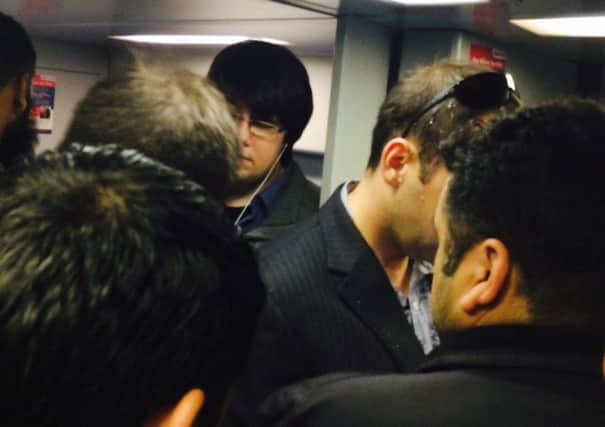A critical time for the future of rail services in Yorkshire


As he pointed to the picture of the 30-year-old diesel, sometimes unflatteringly nicknamed “a bus on rails”, he told the audience that this rail relic is part of the fleet connecting Leeds, Bradford and Manchester, three major economic centres in the North.
He was displaying the picture, the chairman of the West Yorkshire Combined Authority Transport Committee explained, to show that “when we ask for rail investment in the North, it’s not because we want deep shag pile carpets in the trains”.
Advertisement
Hide AdAdvertisement
Hide AdCoun Lewis has not been a lone voice in asking for significant investment in both rail infrastructure and rolling stock in the North.
For a long time, there has been cross-boundary and cross-party efforts to convince those that hold the purse strings to hand over the purse, or failing that, to spend on northern rail because improved connections would have a dramatic impact on the economy.
Watching billions being poured into the Crossrail project in London has only served to aggravate the sense of frustration.
But 2014 has represented something of a breakthrough for that campaign.
Advertisement
Hide AdAdvertisement
Hide AdThe prospect of a General Election next year with a host of key marginals clustered around the M62 corridor twinned with the Scottish independence referendum reminding Westminster and Whitehall about the dangers of a country dominated by the fortunes of the South-East have combined to put growing the northern economy much higher on the political agenda.
And as key figures in the major political parties queued up to give speeches on growth in the North there was a common theme - connectivity.
In part that meant better broadband connections across and between northern cities but it was also a recognition of the argument long advanced in these parts that better transport links between cities in Yorkshire and the North-West is one of the keys to a transformation of the economy outside London and the South-East.
Chancellor George Osborne went as far as to suggest that the next high speed rail project should be a transpennine link, quickly dubbed HS3. Weeks later, when northern councils published their One North report on growing the economy which recommended a 125 mph transpennine rail service - the kind of report routinely ignored in the past - the Chancellor not only welcomed it but spoke at the launch.
Advertisement
Hide AdAdvertisement
Hide AdThe start of work on the Northern Hub package of rail improvements and positive noises about electrification of the Harrogate and Selby-Hull lines have added to the sense of optimism.
But this progress has only served to magnify the frustration whenever there are signs that political rhetoric is not being matched by reality on the ground.
When the Department for Transport published a consultation document on the future of the transpennine and northern rail franchises in June it was as if the civil servants who wrote it had not received the memo about the importance of rail investment.
This was a document that spoke of “trade-offs” that might be needed to support investment.In other words cuts in one area to support spending in another.
Advertisement
Hide AdAdvertisement
Hide AdReducing the opening hours of ticket offices, cutting “lightly-used” services and raising below-average fares were among the ideas floated.
There was also an unpleasant surprise for Northern Rail passengers who had previously travelled on off-peak tickets in the evening.
A deal to extend Northern Rail’s franchise until 2016 included agreement the company could charge peak fares in the evening.
Figures produced by Labour suggested the change could raise the cost of some journeys by as much as 77 per cent.
Advertisement
Hide AdAdvertisement
Hide AdPassengers using Transpennine Express Services were dismayed to discover that 18 carriages used on routes already considered by many to be overcrowded at peak times will be transferred to Chiltern Railways
So among key figures across the region, there is a shared sense that there are still battles to be won and the coming weeks and months represent an important moment for the future of rail in Yorkshire and its connections to other parts of the country.
On Monday, HS2 chairman Sir David Higgins will publish his latest report on maximising the benefits of high speed rail, including through improvements to the wider transport network.
Within weeks the Government is expected to announce the company which will take over the East Coast Main Line franchise as it is returned to the private sector.
Advertisement
Hide AdAdvertisement
Hide AdThe shape of the transpennine and northern rail franchises covering the bulk of local services in Yorkshire will be decided before companies are chosen to run them next year.
And in December, the Chancellor has promised to set out a plan to turn the North into an “economic powerhouse”, a major element of which will be transport.